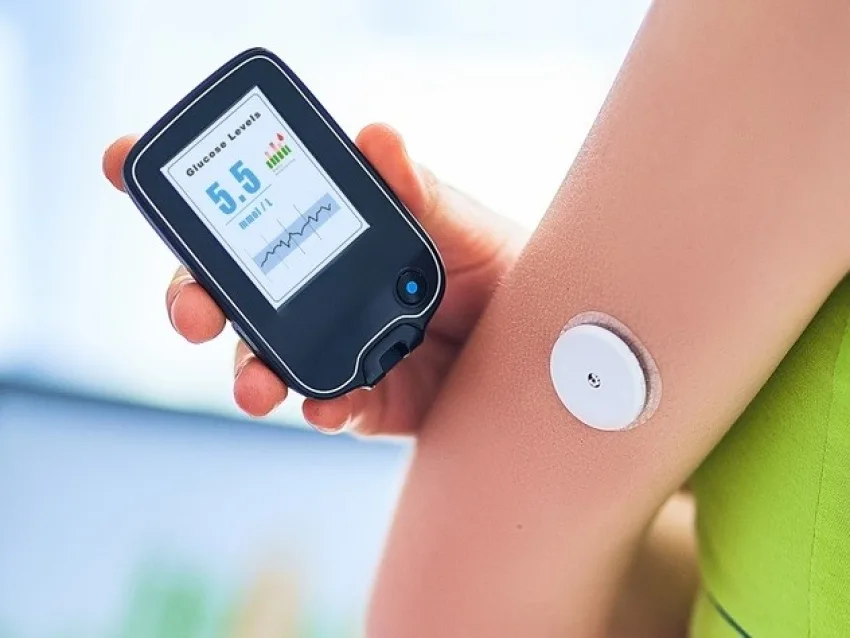Glucose is a simple sugar found in many foods, from fruits to pasta. Once it enters your bloodstream, it plays a vital role in providing energy and supporting body functions. But the real question is, what does glucose turn into once it’s inside your body?
In this article, we’ll explain, in clear, simple terms, how your body uses glucose, what it turns into, and why that matters for your health.
What Happens to Glucose After You Eat?
According to a research on Designs for Health Institute’s BoulderFest, when you eat carbohydrates, your digestive system breaks them down into glucose.
This glucose is then absorbed into your bloodstream, raising your blood sugar levels. Your pancreas responds by releasing insulin, a hormone that helps glucose enter your cells.
Once glucose is inside your cells, your body decides how to use it depending on your energy needs. So, what does glucose turn into from there? Here are the 4 main things glucose turns into in your body:
1. Energy (ATP)
Your body’s main use for glucose is to make energy. Inside your cells, glucose is broken down in a process called cellular respiration, and the result is ATP (short for adenosine triphosphate).
Think of ATP like tiny batteries that power everything your body does, like walking, thinking, or even breathing.
If your body has enough oxygen, glucose turns into a lot of energy.
If you’re exercising hard and your oxygen is low, it turns into a small amount of energy and something called lactic acid.
Click here to learn more about the causes and solutions of low energy and fatigue
2. Stored Sugar (Glycogen)
If your body doesn’t need the energy right away, it stores the extra glucose. This storage form is called glycogen.
Your liver and muscles keep glycogen so you can use it later, like when you haven’t eaten for a few hours or while sleeping.
This is kind of like saving leftovers in your fridge for later; you’re not wasting the sugar, just keeping it for the next meal.
Click here to learn more about why you feel tired all the time and have no energy.
3. Fat
If you keep eating more sugar than your body needs, even after your glycogen “storage” is full, then your body starts turning the extra glucose into fat. This fat is stored in different parts of your body, like your belly, arms, and thighs.
This is why eating a lot of sugary or starchy foods can lead to weight gain, especially if you’re not very active.
Click here to learn more about what carbohydrates do for children.
4. Building Blocks for Other Things
Glucose can also help your body build other important molecules, like:
- Proteins: Some amino acids (the building blocks of protein) come from glucose.
- DNA and RNA: Glucose helps make parts of your genes through a special process in your cells.
So glucose isn’t just about energy; it also helps build important stuff your body needs to grow and stay healthy.
Quick Summary
Here’s a simple chart to show what glucose turns into:
| Glucose Turns Into | Why? |
|---|---|
| ATP (energy) | To power your body |
| Glycogen | To save energy for later |
| Fat | When you eat more than needed |
| Other molecules | To build proteins and DNA |
Click here to learn more about whether glucose is sugar and understand what glucose is.
Why This Matters
Understanding what does glucose turn into can help you make better choices about what to eat and how much to move.
- Eating too much sugar? It might turn into fat.
- Skipping meals? Your body will use glycogen.
- Exercising? Your body will burn glucose for energy.
Understanding how your body works makes it easier to maintain good health.
Click here to learn more about whether your favorite foods and drinks are unhealthy.
Why It Matters
Understanding how glucose is processed in the body can help you take better care of your health. Here’s why:
- Balanced Diets: Eating more glucose than your body needs can cause it to be stored as fat.
- Blood Sugar Management: In people with diabetes, the process of using or storing glucose doesn’t work well, leading to high blood sugar levels.
- Exercise Benefits: Physical activity helps your body use glucose for energy, lowering blood sugar and preventing fat storage.
- Brain and Cell Health: Glucose supports brain function and cell repair through pathways beyond just energy production.
Click here to learn more about teatox tea for weight loss reviews.
A Wor from GetMe Treated
So, what does glucose turn into? The answer depends on what your body needs. It could become energy, stored sugar, fat, or help build other things in your body. Keeping a healthy balance of food, movement, and rest helps your body use glucose the right way.
FAQs About What Does Glucose Turn Into
What does glucose turn into in the body?
It turns into energy, glycogen (stored sugar), fat, or other important body chemicals.
Does all glucose turn into fat?
No, only extra glucose turns into fat if your body doesn’t need it for energy or storage.
Can glucose be stored?
Yes, it’s stored as glycogen in the liver and muscles.
What happens to glucose during exercise?
It turns into energy to help your muscles work.
Is glucose bad for you?
Not at all, your body needs it! But too much of it, especially from sugary foods, can lead to health problems.
What happens to glucose without oxygen?
It turns into lactic acid and a small amount of energy.

